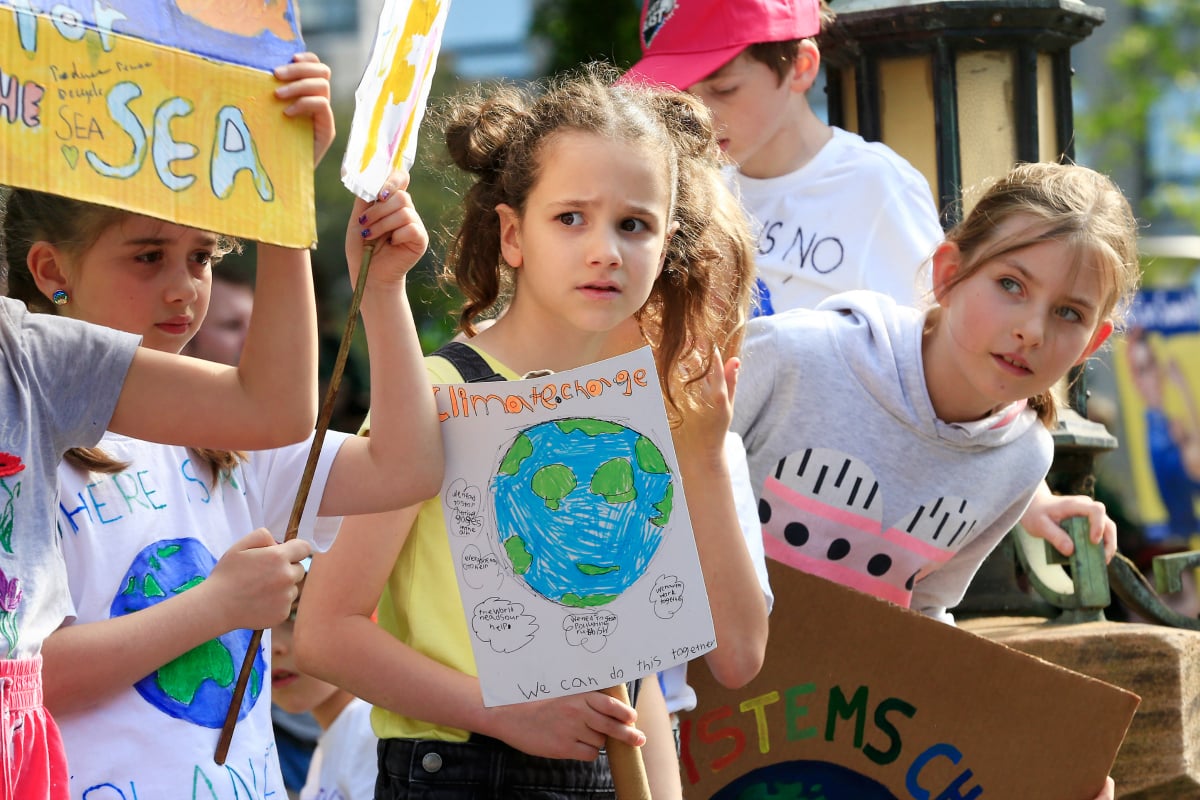
These days climate change deniers — or climate change sceptics, as some prefer to be called — don’t actually tend to dispute that the climate is changing.
After all the numbers are there: the six warmest years on record since 1880 were 2014-2019; average sea-levels have risen 23 cm since the late 1880s; ice sheets are shrinking by more than one hundred billion tonnes every year; and so on, and so on.
Instead, their ‘denial’ typically centres around the role of humans in contributing to that change. They don’t think we’re to blame, nor that we should panic. All those kids marching in the streets? Brainwashed, they say. The activists warning of the unfolding threat to ecosystems and human lives? Alarmist greenies.
Watch: Jane Goodall on leaving a better world for our children.
But the thing is, unlike climate change sceptics, those ‘alarmists’ actually have science on their side; decades of credible, peer-reviewed research undertaken by thousands of scientists around the world.
Below, we take a look at some of the key findings so that you can effective conversation with someone who denies the human-driven climate change emergency.
But first, a quick refresher…
Climate change is…
changes in typical weather patterns (and related changes in oceans, land surfaces and ice sheets), occurring over a long period of time.

Top Comments
And rather than just continued articles contributing to the hysteria, why not encourage people to make changes that will help the planet? You can't expect the Government or businesses to change their policies or practices when the majority of the population (including those screaming for action) continue to lap up the benefits of that which they most decry.
Don't use anything reliant on fossil fuels or mining - your car, synthetic clothing, technology, flying, imported products, plastic, petroleum based cosmetics.... Quit alcohol and processed food - both waste good food that could be better utilised in natural form. Don't waste food and campaign against wastage by major supermarkets etc.
Until people are willing to make sacrifices of their own comfort and change their behaviour, nothing will change. Most sceptics are totally over being preached at and you've got no chance to win them over unless you practice what you preach.
People can only do so much. It's government and big business that need to direct change. You can only do so much as an individual when you still have to participate in society.
Big business and government are already doing their parts, charging us more and more for everything from plastic bags to heating and lecturing us cheerfully that it’s for our own good as they take our money.
Banks for example, talking about ethical investments, the same good corporate citizens who just got done for thousands of violations of money laundering and anti organised crime regulations. Banks, now there’s a group who are always looking out for the little guy. Bless them.
How to have a conversation with a climate change denier. Just effing DONT. Its a waste of breath and not worth your time.
Touché